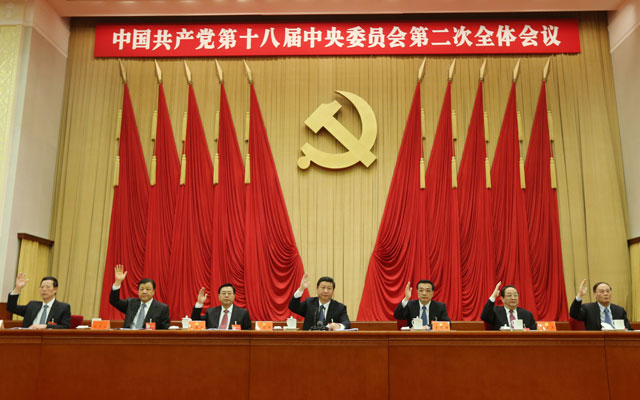In China, the Party Still Controls the Gun
Dean Cheng /
General Peng Yong, commander of the Xinjiang Military District in China’s Lanzhou Military Region (MR), has reportedly been fired from the Xinjiang Chinese Communist Party (CCP) standing committee—the top leadership organization for the Xinjiang Uyghur Autonomous Region.
This was apparently in response to this past week’s incident, where a Uyghur-driven car laden with gas cans crashed near Tiananmen Square, killing two bystanders as well as the three people in the car, and injured another 40.
The decision to remove General Peng from the party standing committee highlights several key points.
First, and perhaps most important, is that it is a reminder of just how integrated the military and civilian leaders are in China—and not just at the national level. Senior military commanders heading military districts (MRs are comprised of several military districts, each of which is usually aligned with provincial borders) serve on their respective provincial party standing committees. This creates regular opportunities for military and civilian leaders to exchange information, resolve issues (e.g., “Your people are causing too many fights”), facilitate civil–military integration (e.g., food, housing), etc.
This is not to say that the military doesn’t have views distinct from the civilians, but claims of a “rogue” Chinese military that is somehow making decisions independent of the civilian leadership are simply false. As a Party-army, the Chinese People’s Liberation Army (PLA) is the armed wing of the CCP. It does not owe its main respect and loyalty to the Chinese constitution, but to the CCP. Party indoctrination, bureaucratic ties, and regular interaction with civilian leaders—including through the provincial Party standing committees—facilitate civil–military relations.
Second, it’s also an interesting insight into how the PLA is different from our own in terms of personnel rotation. Chinese military commanders tend to stay in the same system. This would, again, argue against the oft-heard assumption of a rogue PLA—you’d want to rotate people around so as to prevent cabals from forming. Conversely, it builds up a fair amount of expertise about local conditions (e.g., high mountain operations in the Chengdu MR, amphibious operations in the Nanjing and Guangzhou MR).

